10 Ways to Save on Healthy Food When Prices Skyrocket
Nutritious food doesn’t need to cost a lot

It may seem like eating healthy on a budget is hard, but you might just need to tweak your habits. There are many ways to save on healthy foods without sacrificing nutrition, flavor, or satiation. Learn more about the best strategies to eat well without going over budget.
Eat seasonal foods

Have you ever noticed strawberries are more expensive in December than in June? Stores sell limited quantities of off-season fruits or vegetables. They can raise prices because customers are willing to pay more to have them year-round. If you’re on a budget, buy seasonal foods. Find out which foods are in season by searching the internet. You can also visit your local farmers’ market or join a community supported agriculture (CSA) group.
Create meal plans
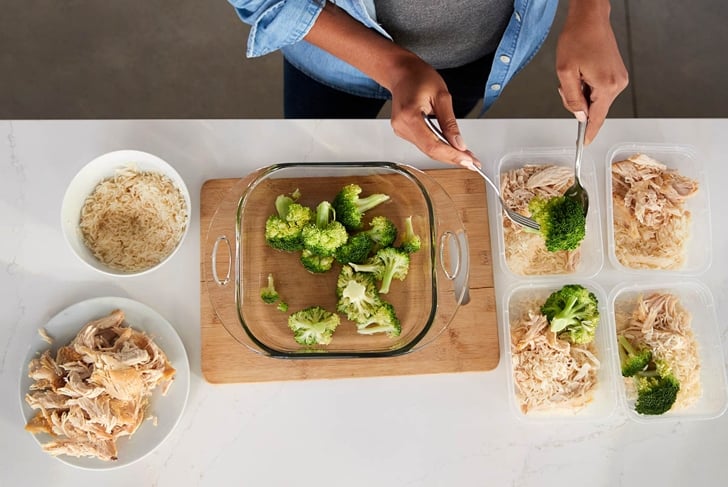
When you organize your meals in advance, it takes the guesswork out of what to make for lunch and dinner. Meal planning is also an effective strategy to save money. When you plan your recipes, decide which meals to make based on what’s on sale at the store. Additionally, you won’t have to make multiple trips to the food store and risk the temptation to pick up unnecessary items. To create meal plans, decide what you’d like to eat for each lunch and dinner throughout the week and determine which ingredients you need before you go food shopping.
Go meatless more often
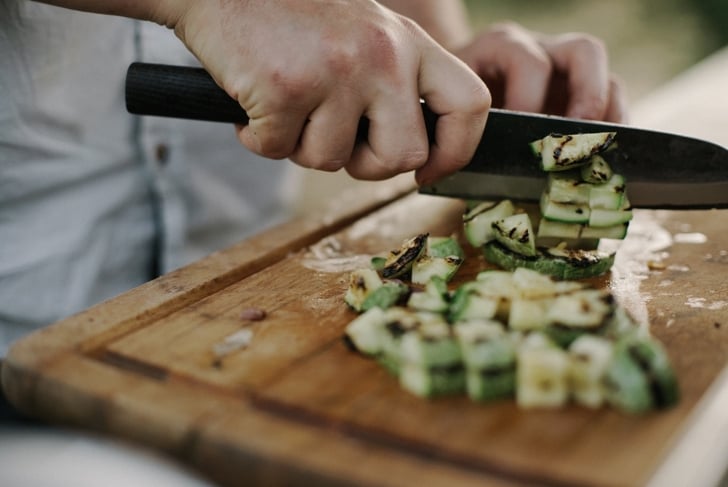
Meats, like beef and chicken, cost more money than plant-based proteins. It’s more expensive to care for animals and process meat, and producers pass that expense onto consumers. Not only do vegetarian proteins, like tofu and beans, tend to be less costly, but you may also find some of them more filling. Make a list of delicious and nutritious plant-based recipes, and incorporate more of these meatless meals into your routine.
Cook your meals
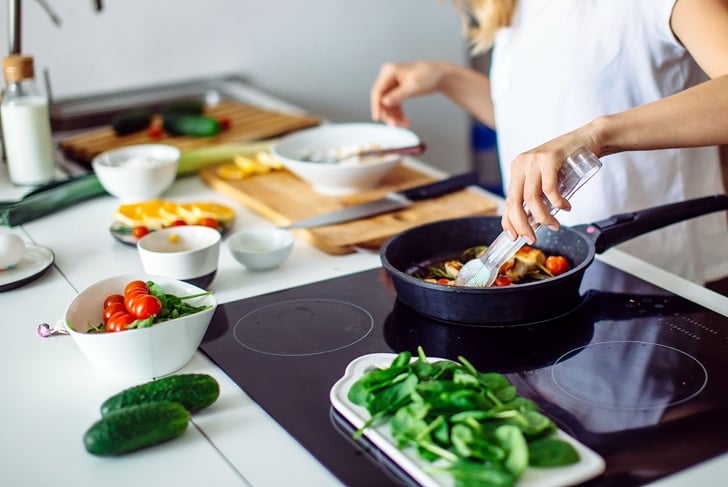
It’s likely your takeout or restaurant meals are costly and not very healthy. When you cook healthy dishes at home, you have more control over which ingredients you use. Restaurant meals also cost more than what you likely spend at the store. If you usually eat or order out and aren’t sure where to start, find a few simple and healthy recipes.
Consider buying in bulk
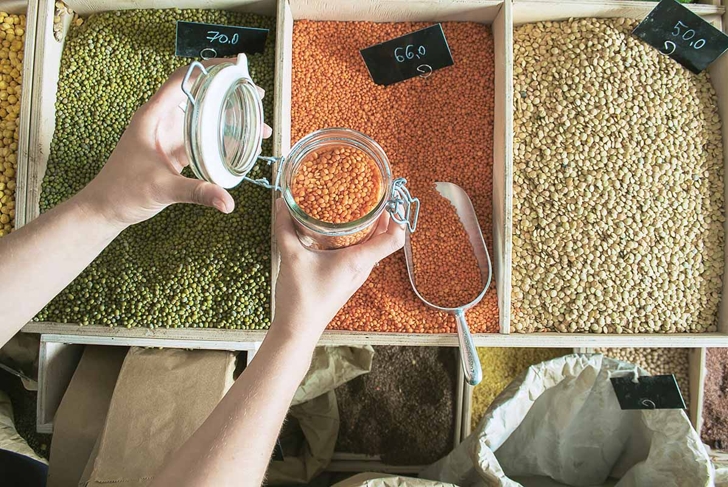
Purchasing staples, such as rice or dried beans, in bulk is usually cheaper but not always. To determine if a bulk product is worth it, you can do some comparison shopping. When you find a bulk product, divide the total item price by the unit weight or number to get the price per unit. From there, you can figure out if it’s cheaper to purchase the item in bulk.
Buy store-brand items
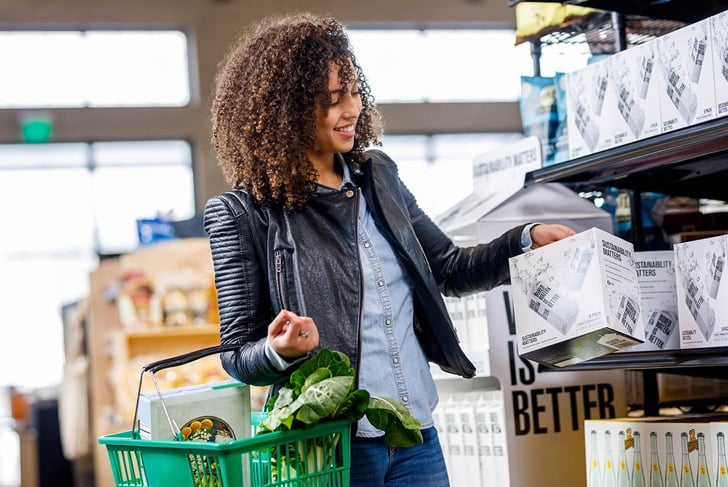
If you search the shelves at the store, you’ll find a lot of your favorite brands have store-brand counterparts. Generic products tend to contain similar ingredients but cost less. Brand-name companies spend a lot of money on packaging and advertising and make up that cost by charging more for their products. Next time you’re at the food store, search the lower shelves for store-brand alternatives.
Remember the Clean Fifteen

Organic foods are usually more expensive than conventionally grown items. You can still maintain a healthy diet even if you can’t afford to buy everything organic. The Environmental Working Group (EWG) maintains the Clean Fifteen list, made up of fruits and veggies that tend to have very small amounts of pesticide residue. Examples include avocados, onions, and mushrooms. On the other hand, prioritize buying organic when it comes to the EWG’s Dirty Dozen list of the most pesticide-laden produce, including strawberries, spinach, and apples.
Grow your own produce

Although it may cost you a little more to get started, growing your own food can result in a lot of savings. When done correctly, a small home garden can provide large quantities of fruits and vegetables. You also have control over pesticide use and reap other health benefits from gardening. If you don’t exactly have the greenest thumb, start small. A window box with some herbs can help you save money and elevate your meals.
Make a list and stick to it

Many times, shoppers find themselves picking up items they don’t need. By writing a grocery list ahead of time and sticking to your plan, you’ll save by avoiding unnecessary items. Additionally, make sure you shop on a full stomach, so you avoid buying food based on hunger pains rather than need. Another good way to stick to your list is by using your store’s online order and pickup system.
Purchase filling foods
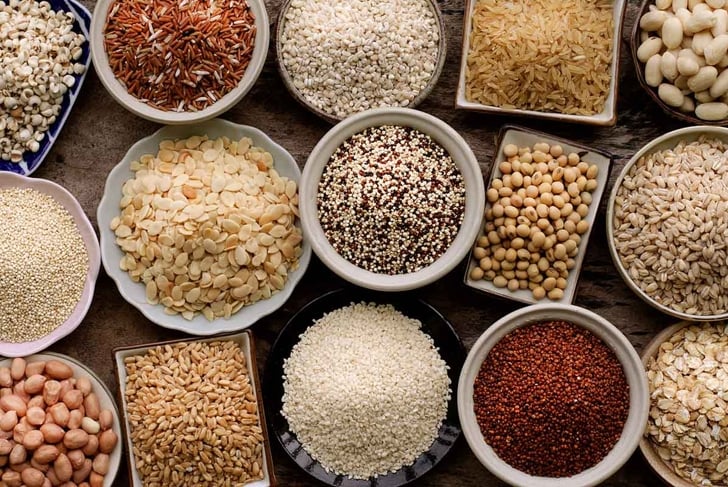
If you’re on a tight budget, buy foods that will help you stay fuller for longer. When you eat foods that don’t fill you up, you get hungry faster and go grab more food, which could lead to more spending. Foods with a lot of fiber and healthy fats keep you full for hours. Buy more filling foods, like eggs, avocados, and oats, and fewer foods with empty calories, like muffins, white bread, and chips.





